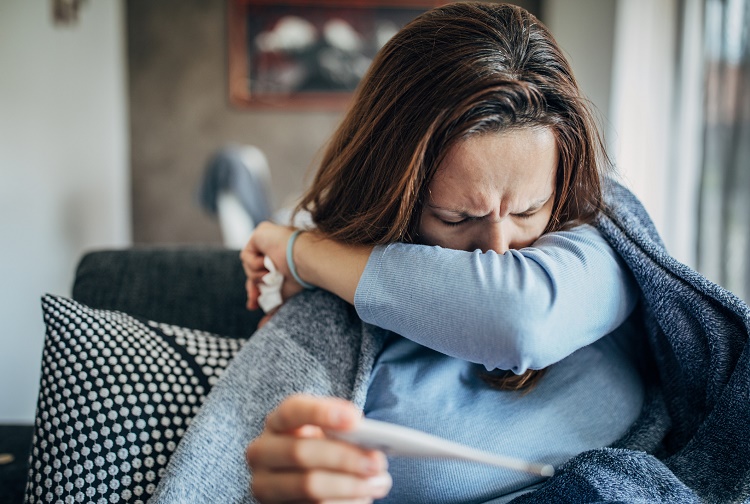
7 ways to talk to hesitant loved ones about the COVID-19 vaccine
A VCU expert explains how to talk with friends and family members who don’t want the vaccine.
March 15, 2021 Photo: Getty Images
Photo: Getty Images
By Joan Tupponce
While emergency use authorization of COVID-19 vaccines from Pfizer, Moderna and Johnson & Johnson comes as a beacon of hope, many people, for a variety of reasons, aren’t ready to sign up.

Here, Jeanine Guidry, Ph.D., an assistant professor in the VCU Richard T. Robertson School of Media and Culture in the College of Humanities and Sciences and director of VCU’s Media+Health Lab, offers seven tips for talking to people who don’t want the vaccine and persuading them that vaccination is in their best interest.
1. Ask for specific reasons why they don’t want the vaccine.
Knowing the specific reason why someone says they won’t get the vaccine makes it easier to address than vague generalities.
2. Empathize with their concerns.
When responding to specific concerns, point out that many of us are scared, that many people feel uncertain. Acknowledge that we’re all coming from the same place — a place of stress and fatigue.
3. Share your story.
Talk about your own experience getting the vaccine or why you look forward to getting vaccinated. Note how you aren’t just protecting yourself, but you’re protecting those around you — including those who can’t yet get the vaccine. Your personal story can communicate faith, hope and honesty.
4. Don’t argue.
Whether addressing someone face-to-face or through social media, don’t argue. You don’t want people to feel defensive. Posting on their feed “You are wrong” won’t help your case.
Again, figure out what their concerns are. Acknowledge that it’s normal to feel concerned in the midst of a pandemic. Then address their specific concerns and share your own reasons for getting the vaccine.
5. Move discussions offline.
The majority of people who spread COVID-19 vaccine misinformation — either online or in person — do so because they’re scared the vaccine is going to harm them or their family or that it won’t work. That’s a hard thing to address because the belief has usually been building awhile.
If you’re communicating with someone you’re in touch with in real life as well as on social media, I recommend having a private conversation in person, on the phone or through private messenger. Communication comes across differently when you put it in writing, especially when it’s public. It’s hard to take something back, and it’s easy to have something misconstrued. Attitudes harden and feelings get hurt.
6. Replace myths with facts.
First, find out if it’s the COVID-19 vaccine they’re hesitant about, or all vaccines. If it’s the COVID-19 vaccine specifically, it may be a matter of clarifying some misconceptions.
For example, some people think the vaccines were developed too quickly. It’s true that the vaccines were developed especially fast, but that doesn’t mean corners were cut. Research on previous coronaviruses — and there are many — had been taking place for years. Vaccine developers were able to build on that.
In addition, governments worldwide — including ours — were willing to invest in multiple companies and vaccine platforms at once, allowing companies to develop and stockpile vaccines in case the clinical trials showed the vaccines would work.
Another piece of misinformation is that COVID-19 is not a serious disease, or worse, it’s a hoax. If you don’t take COVID-19 seriously, and you believe you aren’t likely to get it, you’re much less likely to get the vaccine no matter how well it may work. The answer to that is that we have now lost more than 500,000 lives to COVID-19 in the U.S. alone. It is a very serious disease for far too many people.
You don’t need to present formal research studies to correct misinformation. For quick, easy responses to COVID-19 vaccine myths, see “Vaccine myths: Facts vs. fiction.”
If someone is opposed to all vaccines, not just the COVID-19 vaccine, communication becomes much more difficult. Go back to their specific concerns. Can you address them? Can you share your story?
7. Point out better sources.
When countering information shared on social media, look at the source. Is it credible? Ask the person who posted the misinformation:
• Who is the source? Is the source credible? Can they find the information anywhere else? Credible sources include the Centers for Disease Control and Prevention (CDC), the World Health Organization or the Virginia Department of Health (VDH).
• Is the source anonymous or tied to a specific interest group? If so, can they find that same information presented by a reputable source, such as the CDC?
• If you’re communicating with someone who doesn’t trust government health sources or public health sources, find reputable sources they do trust, such as religious organizations or community leaders. Present credible information from those sources.
You may not convince someone that vaccination is in their best interest right away, but you may reach a point where they’re willing to think about it. That’s half the battle.
For more information
To learn more about COVID-19, please visit our COVID-19 news center. To learn more about the COVID-19 vaccine, in particular, visit our vaccine page and sign up for vaccine email updates.
Become a vaccine champion
You can play an important role in keeping our community healthy and safe by becoming a vaccine champion. As a vaccine champion, you will share your personal reasons for signing up to get vaccinated. Through our program, we will empower you with the tools to have meaningful conversations with your friends and family members.
Sign up here to become a vaccine champion.
Esther Benenson contributed to this article.



